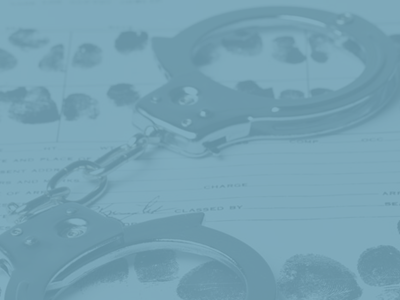Ponte Vedra Beach Criminal Defense Lawyer
Ponte Vedra Beach, FL Criminal Attorney
Being arrested for a crime can be uncertain and stressful. The criminal law system can be confusing, and there is a lot to be concerned about. A criminal charge needs a proper defense to limit or negate the penalties of a conviction. Criminal convictions result in clear penalties like fines and prison time, but there are additional consequences after your sentence that can harm the rest of your life. This includes limits on your educational opportunities and difficulty finding housing. If you have been charged with a crime, it’s important that you begin working with a Ponte Vedra Beach criminal defense lawyer as soon as possible.
Kevin A. Raudt, P.A., has proudly represented individuals charged with crimes in Ponte Vedra and the surrounding communities. We have worked in criminal defense law for nearly 40 years and understand the frustration and stress you’re under. You need reliable and effective representation when facing a potential criminal conviction. Kevin A. Raudt, P.A., provides counsel and support while working to lessen your sentence and penalties. We have experience in many complex misdemeanor and felony cases, with a deep understanding of the criminal law system.
Common Areas of Criminal Law Defense
It’s essential to work with a criminal defense attorney who has experience with your type of case. That way, they can understand the defenses that work in situations like yours. They have experience with the common pitfalls and requirements of your case. Common areas of criminal defense include:
- DUI: Driving under the influence (DUI) is treated seriously in Florida, as it puts others on the road in danger. A DUI in Florida can result in license suspension, months to years of incarceration, thousands of dollars in fines, and other penalties. If someone was injured or killed during a crash caused by a DUI, penalties are significantly worse.
- Shoplifting: The charges for shoplifting theft depend on the value of the items stolen. Theft of items under $100 is a second-degree misdemeanor, which is considered petty theft. Shoplifting more than $300 in items is considered grand theft and is charged as a third-degree felony.
- Drug Charges: Drug charges may include possession, manufacturing, trafficking, and distribution. The penalties depend on the charge, the type of controlled substance, and the amount of substance the charge involved.
- Assault and Battery: These are two separate crimes. Assault is a threat to cause harm, while battery is causing physical harm. Both assault and battery can have aggravating circumstances that would increase the penalties. Simple battery is a first-degree misdemeanor, while aggravated battery is a second-degree felony.
- Stalking: Under Florida law, stalking is considered the repeated following, harassment, or cyberstalking of another person. A conviction may result in fines, prison time, and a restraining order placed against the offender.
- Domestic Violence: A domestic battery conviction is a misdemeanor that results in up to 1 year in jail. In aggravated circumstances, domestic violence is charged as a felony. Conviction results in up to 5 years in prison for third-degree felonies, up to 15 years for second-degree felonies, and up to 30 years for first-degree felonies. You will also likely face a restraining order.
- Fraud and White-Collar Crimes: These crimes include embezzlement, forgery, insurance fraud, money laundering, and credit card fraud. Penalties for these offenses will depend on the type of crime and the amount of money involved.
- Robbery: This is a violent crime and is classified as a felony. Aggravating factors like the use of a firearm or having a prior conviction can increase the penalties.
If you have been charged with one of these crimes, whether you are facing a misdemeanor or felony charge, you need to work with an attorney quickly.
Why Do I Need an Attorney for Criminal Defense?
A criminal charge is a serious situation. It’s always important to protect your rights by working with a criminal defense attorney. Your attorney can protect your rights from the beginning and represent you in any administrative hearings or arraignment. An attorney can also ensure your rights are protected before proceedings begin.
To prepare for your criminal case, your attorney has the experience and resources to handle important tasks like gathering evidence, interviewing witnesses, and examining police reports. This enables them to create an effective defense and work to reduce your penalties or even get your charges dropped.
Working with a criminal defense attorney ensures that you’re not facing state prosecutors unprepared. It’s in your interest to have an attorney by your side as soon as possible.
Misdemeanor Criminal Penalties
Misdemeanors are less serious than felonies, but the penalties are still significant. There are two classifications of misdemeanors:
- Second-Degree Misdemeanor: This is the less-severe form of misdemeanor, and penalties include up to 60 days in jail and/or fines of up to $500.
- First-Degree Misdemeanor: Penalties include up to 1 year in jail and/or a fine of up to $1,000.
There are additional penalties for repeat misdemeanors, crimes against vulnerable populations, and bias crimes.
- Repeat Misdemeanors: Each misdemeanor has a different penalty enhancement when there are repeat offenses.
- Habitual Misdemeanor: This is categorized as a conviction for a fifth misdemeanor repeat. This includes a minimum of 6 months in jail or in treatment.
- Crimes Against Vulnerable Victims and Protected Professionals: There are enhanced penalties when certain offenses are committed against children, the elderly, or professionals like law enforcement, firefighters, or emergency healthcare providers.
- Bias Crimes: This is how Florida law refers to an enhancement for a hate crime, which includes crimes motivated by prejudice against a person’s race, ancestry, religion, ethnicity, homelessness, sexual orientation, or age.
Felony Criminal Penalties
Felonies are significantly more serious and carry sentences of a year up to life in prison. Certain felonies are also punished with the death penalty in Florida. The classifications of felonies in Florida are:
- Third-Degree Felony: This is the least severe felony in the state. Penalties include up to 5 years in prison and/or fines of up to $5,000.
- Second-Degree Felony: Penalties for a second-degree felony are up to 15 years in prison and/or up to $10,000 in fines.
- First-Degree Felony: A first-degree felony is punishable by up to 30 years in prison and/or up to $10,000 in fines.
- Life Felony: Penalties include life in prison and fines of up to $15,000.
- Capital Felony: A capital felony, such as first-degree murder, results in life in prison without parole or the death penalty.
Felony sentencing may be enhanced for repeat and habitual felony offenders or habitual violent felony offenders.
Non-Criminal Penalties of Conviction
The criminal penalties of a conviction can be serious and life-altering. However, the effects of conviction don’t end after your sentence is complete. A criminal record can harm much of your life and future. This includes:
- Ability to Find Housing: Your criminal record may limit your ability to get housing and rental applications. The Fair Housing Act protects people from housing discrimination based on protected characteristics, but not those with criminal records and convictions.
- Educational Opportunities: Certain criminal offenses can make you unable to gain student loans and grants. A criminal offense can also affect college application acceptances or lead to expulsion from school.
- Job Opportunities: A criminal record can impact your ability to get a job, as a background check is a part of most permanent job applications. Felony convictions also prevent you from obtaining a professional license.
- Ability to Get a Driver’s License: Certain criminal charges, like a DUI, result in the suspension or revocation of your license.
- Family Court Proceedings: Criminal records have an impact on several family court decisions. The court will consider a party’s past criminal history when determining child custody, visitation, adoptions, divorce, division of property, and other disputes.
- Ability to Serve in the Armed Forces: A criminal conviction can prevent you from serving. If you commit a criminal offense while serving, you may be dishonorably discharged.
- Immigration Status: A criminal conviction may result in detainment or even deportation.
- Assistance Programs: A conviction may prevent you from gaining state or federal benefits.
- Right to Bear Arms: Conviction for violent felonies or certain misdemeanors prevents you from carrying and owning a gun.
A conviction for certain felonies can also prevent you from voting, becoming a juror, and holding public office. These collateral consequences can follow you for much of your life. By working with an experienced criminal defense lawyer, you have the greatest chance of avoiding conviction or lessening the penalties.
Kevin A. Raudt, P.A.: Your Ponte Vedra Beach Criminal Defense Attorney
If you’ve been arrested and charged with a crime in Ponte Vedra Beach and the surrounding Jacksonville area, you need to contact an experienced attorney. Kevin A. Raudt, P.A., understands how serious this situation is for your future. Our firm wants to help you protect your future and your rights because everyone deserves good legal representation.
Kevin A. Raudt, P.A., provides compassionate and effective legal counsel while always remaining honest with you. Our experience across nearly 40 years of legal counsel ensures that we have the necessary knowledge and understanding of cases like yours. If you need effective criminal defense, contact Kevin A. Raudt, P.A., today.
Get a Free Consultation
"*" indicates required fields





